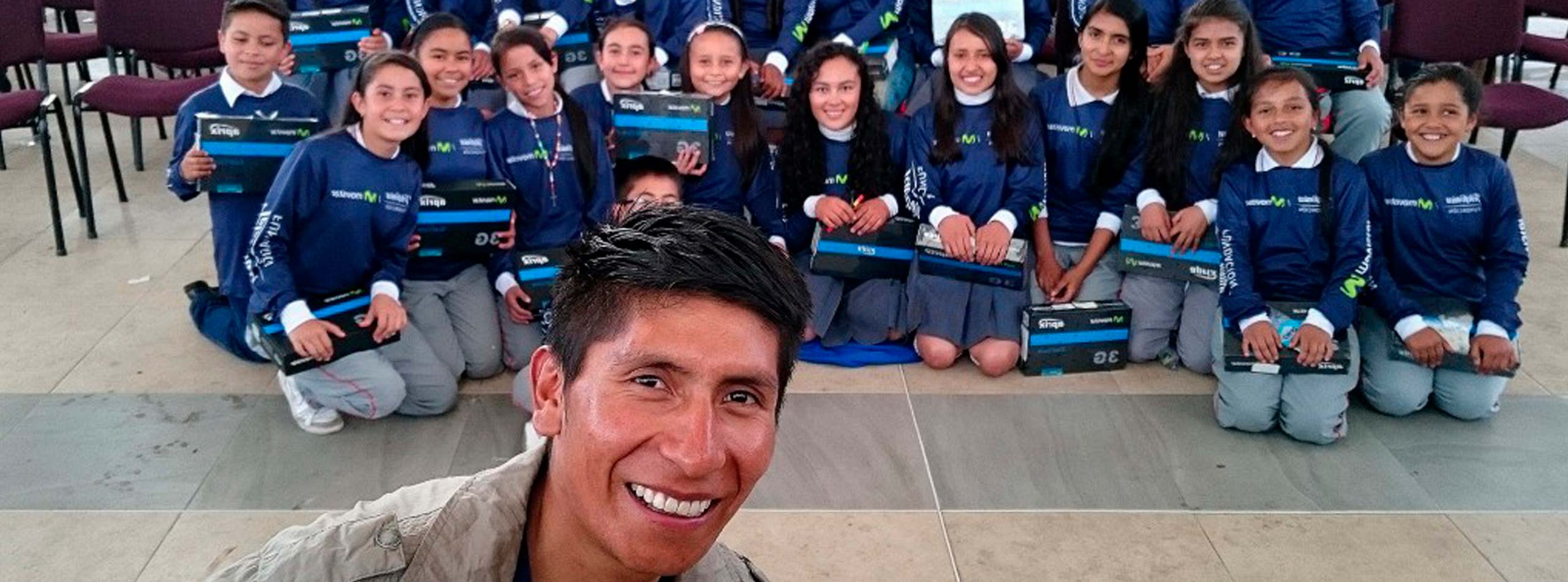30.03.2016
We took Nairo Quintana to share the day with the children of Arcabuco in Columbia
On 5 March, Movistar’s Fundación Telefónica took the ‘Maestros por un Dia’ (Teachers for a Day) exercise to Arcabuco in Boyacá, a programme which has been running since 2012 to promote the use of computers and help improve computer skills in the community. The cyclist Nairo Quintana, a friend and partner of the Fundación, and eight of the country’s computer specialists took part.
We took Nairo Quintana to share the day with the children of Arcabuco in Columbia

Fundación Telefónica took the ‘Teachers for a Day’ exercise to Arcabuco in Boyacá, a programme which has been running since 2012 to promote the use of computers and help improve computer skills.
‘Maestros por un Día’ took the form of a digital treasure hunt involving the thirty pupils with the best academic results from Institución Educativa Alejandro de Humboldt, where Quintana himself went to school. Fundación Telefónica Director María Jimena Durán Sanín started proceedings in Arcabuco’s main square where she invited the community to play an active part and learn from the eight internet experts who the Fundación brought to the town in order to help build computer skills among its population.
Over an hour, the children and the Arcabuco community learned about the benefits and proper use of Facebook, Twitter, Instagram, Google Maps, QR codes and Skype, subjects which were presented by the eight internet leaders chosen for their impact on social networks and affinity with the aims of Fundación Telefónica: Diego Cambiaso @diegocambiaso, Alejandra Melo @Tuiteretera, Sandra Alvárez @sanpalqui, Nathaly García @naganicol, Andrés Acosta @andresacosta20, Diana Páez @LibelulaDigital, Kelly Ibañez @KellyPasa and Jeison Rodríguez @UnGat0Mas.
After the explanation of each network and the treasure hunt, the thirty children taking part and the digital experts moved to the Alejandro de Humboldt school where, to the surprise of those attending, Nairo Quintana appeared. He thanked Movistar and Fundación Telefónica for bringing this activity to the school where he himself was taught; he also spoke of how technology has helped his professional career. Afterwards, to round off the day’s activities, Quintana gave out thirty tablets on behalf of Fundación Telefónica to the participants.
With the ‘Maestros por un Día’ programme, Fundación Telefónica continues to contribute to the transformation of education, providing places where people can learn skills in new trends in technology and promoting the use and adoption of these new technologies.